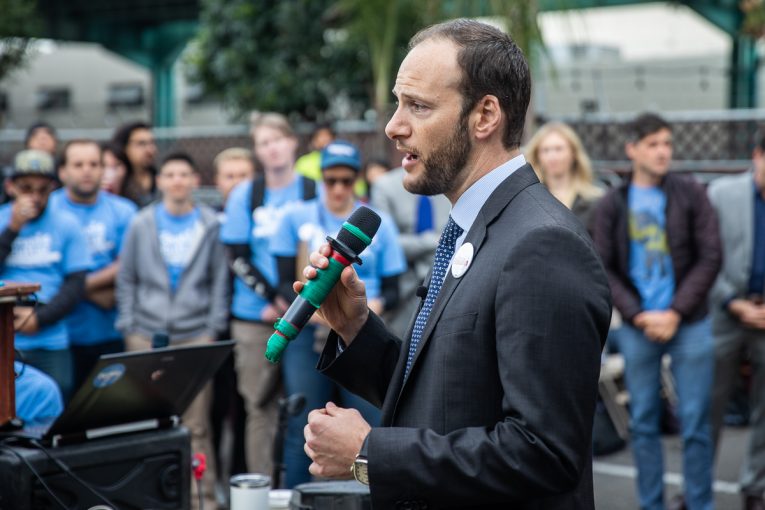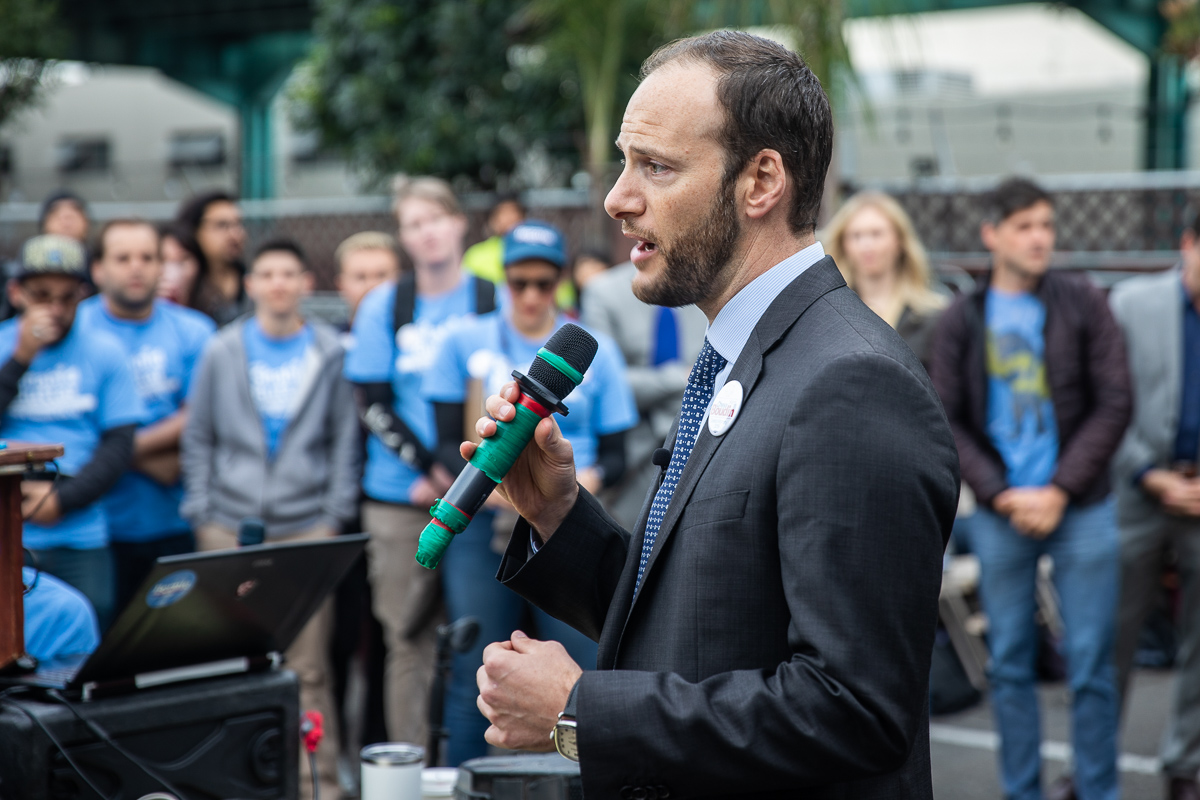

By Lovepreet Dhinsa
SAN FRANCISCO, CA – District Attorney Chesa Boudin announced this week the city of San Francisco was awarded with $6 million to promote accountability and victim healing, and to participate in more restorative justice practices.
This announcement comes in the middle of Crime Victims’ Rights Week, and this is one of several investments that have been recently awarded to the city focused on healing and restorative justice.
Restorative justice uses a victim-centered approach when responding to crimes. The goal of the approach is to actively address the victim that was harmed while also holding the wrongdoer accountable. This approach is highly encouraged and used in the San Francisco District Attorney’s Office when the victim chooses to pursue it.
The President of the SF Board of Supervisors, Shamann Walton, introduced legislation to approve this investment into the city, specifically in the San Francisco Healing Justice Initiative.
President Walton stated that “restorative justice offers victims of crime the chance to have their needs and pain addressed in a meaningful way, while also holding those who commit crimes  accountable. I am glad that San Francisco has received this grant to be able to offer restorative justice solutions to more crime victims and survivors—and to support community organizations in doing so.”
accountable. I am glad that San Francisco has received this grant to be able to offer restorative justice solutions to more crime victims and survivors—and to support community organizations in doing so.”
The San Francisco Healing Justice Initiative is a new community-based organization, which seeks to “integrate restorative justice practices to address crime and harm at various points in a criminal case including charging, pretrial litigation, and resentencing.”
In hopes of accomplishing these goals, the organization seeks to actively contact victims of crime at the earliest point in the case as possible, increase expansion of pre- and post-charge restorative programs, and support the reentry of incarcerated individuals.
Half of the funds given to the organization will be used this summer in a competitive solicitation process to reinvest in community partners and organizations. With the help of these organizations and partners, the initiative seeks to be fully implemented within a three-year period.
District Attorney Boudin also remarked that he “campaigned on a promise to center crime victims and survivors, and give them energy to support their own healing.”
These efforts are in hope of increasing aid and promoting healing within victims.
As DA Boudin notes: “Traditional approaches can often leave victims feeling lost in the legal process. This funding will help ensure that crime victims and survivors who wish to pursue a restorative justice approach can do so. Not only will this benefit crime victims, but it will also promote public safety, as research shows that the restorative justice process reduces recidivism by addressing the root causes of harm.”
San Francisco Chief of Police Bill Scott also supports this funding and allocation toward restorative justice processes. He emphasized the research behind restorative justice and its effectiveness in addressing crime.
Chief Scott said restorative justice focuses on “healing, reconciliation and redemption, and it holds promise to end cycles of recidivism in ways retributive justice often doesn’t.”
Research has repeatedly revealed that restorative justice efforts are far more effective in promoting accountability and healing for victims, as opposed to prosecutorial and incarceration-centered approaches.
Several victims have chosen to participate and pursue a restorative justice approach when working with the district attorney’s office.
According to Valerie Ding, who was victimized in a robbery in the city this February, she would recommend this approach to others as “having the conversation with both parties was really important…and helped me move on.”
Similarly, the head of Restore Circles, Harold Gatensby, who has maintained dedication in survivor-centered work over the years, states that “in the restorative justice peacemaking process, everybody in the room has a voice. You want to focus on the victim/survivor, but also on the person who caused harm because you don’t want the person to re-offend.”
Gatensby emphasized the need for communication, in which “restorative justice also brings community into the process, We want to hear from everyone to find out what is needed to experience healing and restoration. If we listen to each other, then we can make lasting change.”
The Healing Justice Initiative stems from and expands off the restorative justice work that the San Francisco District Attorney’s Office said it has been dedicated to using.
This includes the Make it Right Program for youths between 13 and 17 years of age to communicate with the victim and agree upon how the wrongdoer can help repair the harm caused. This program has shown to be more effective, in terms of recidivism rate, as compared to prosecutorial or incarceration-centered efforts.
The district attorney’s office has also enforced the Neighborhood Courts program for cases involving low-level offenses, in which cases are brought forth to trained neighborhood volunteer moderators who speak with the wrongdoer and come to a conclusion as to how the participant can repair the harms caused.
The Healing Justice Initiative will be working to strengthen and continue investments into the program, said the DA, noting it will continue to work on promoting and encouraging restorative justice approaches throughout San Francisco.
 Lovepreet Dhinsa is a junior undergraduate student at the University of San Francisco, pursuing her bachelor’s degree in Politics with a minor in Legal Studies. She has a passion for criminal defense law, and strives to go to law school to fight for indigent clients. As such, she is also involved in her university’s mock trial program and student government.
Lovepreet Dhinsa is a junior undergraduate student at the University of San Francisco, pursuing her bachelor’s degree in Politics with a minor in Legal Studies. She has a passion for criminal defense law, and strives to go to law school to fight for indigent clients. As such, she is also involved in her university’s mock trial program and student government.
To sign up for our new newsletter – Everyday Injustice – https://tinyurl.com/yyultcf9
Support our work – to become a sustaining at $5 – $10- $25 per month hit the link:




